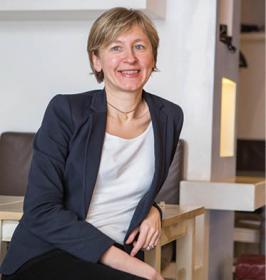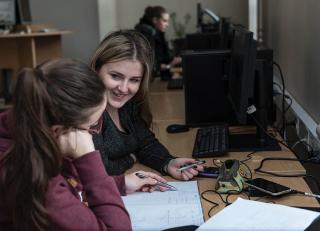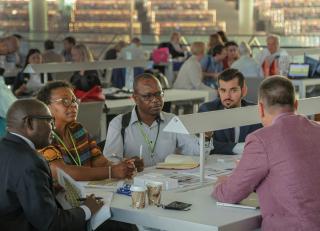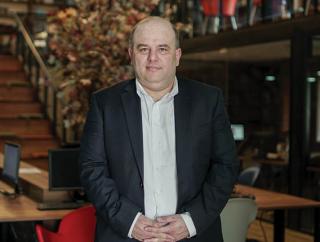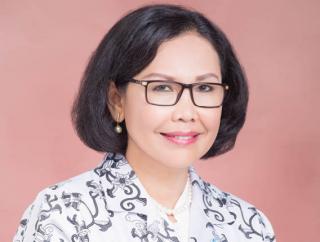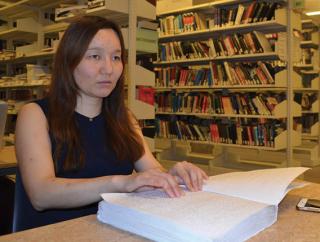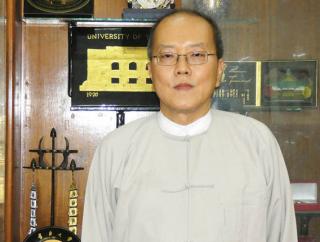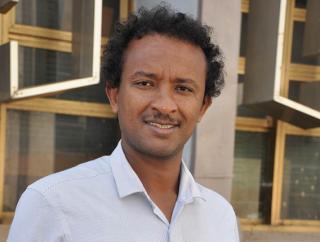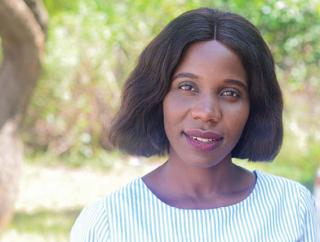2018 was another year to celebrate achievements in copyright. The Marrakesh Treaty for persons with print disabilities took a giant leap forward. The number of countries joining the Treaty more than doubled, from 35 in 2017 to 75 in 2018, including many content-producing nations.
During the year, EIFL continued supporting libraries, and their governments, in adopting this groundbreaking agreement. We are proud to say that 14 EIFL partner countries are among the 75 WIPO member states that have joined the Treaty since 2013.
The Marrakesh Treaty opens doors to knowledge for hundreds of thousands of print disabled people. It breaks down copyright barriers, giving libraries the right to reproduce printed works into accessible formats (such as braille, audio, large print, digital) and to exchange these works across borders.
In August, Teresa Hackett, EIFL Copyright and Libraries Programme Manager received the prestigious IFLA Medal from the International Federation of Library and Information Associations and Institutions for distinguished contribution to international librarianship, particularly in the field of copyright, and for her commitment to enabling equal access to information.
Our ‘Capacity building for public librarians in Africa’ initiative reached over 160 libraries in 14 African countries. In 2018 the EIFL Public Library Innovation Programme completed training of librarians from all public libraries in Zambia that provide public access to computers and the internet, and they are now fully skilled to guide people in discovering the internet and the opportunities it offers.
Students, researchers and faculty are making good use of e-resources licensed by EIFL. We counted over 5.8 million downloads of full-text articles and e-book chapters in 2018.
While we are negotiating affordable pricing for subscription-based journals, books and databases, we are also advocating, raising awareness and training students, researchers and faculty to share their work in open access. The EIFL Open Access Programme’s training efforts, which are advancing openness in science and research, are featured in this Annual Report.
Thank you to everyone who makes our work possible – our partners, our funders, our board members and our enthusiastic and committed staff. I look forward to continuing our contribution to a world in which all people have the knowledge they need to achieve their full potential.
EIFL advances openness in science and research
It is widely recognised that making research results openly available contributes to better and more efficient science, and to innovation in the public and private sectors.
Open science is a research approach that opens up access to all aspects of research while the research is in process (including lab notes and methodology, raw data and analysis), and encourages collaboration among researchers. It incorporates open data (making research data freely available online) and open access (free, online access to research outputs such as articles and books or monographs).
Recently, the European Commission (EC) and other international research funders have introduced policies integrating open science principles and practices in research proposals and plans.
Opening up research means a fundamental change to the way research is done. This has generated a huge need for training to enable researchers to practise open science.
OPEN SCIENCE TRAINING IN EUROPE
EIFL began conducting open access training in Europe in 2004, with workshops in Lithuania and Poland. Since then we have organized and delivered hundreds of training events, reaching scholars, researchers, research administrators, librarians and publishers. Our work has led to adoption of open access policies and establishment of open access repositories and open access journals at universities and research institutes across Europe.
In 2014, we were invited to become a partner in the EC-funded FOSTER (Facilitating Open Science Training for European Research) project which trains early career researchers – mainly doctoral (PhD) students – in open science skills. The FOSTER project also trains researchers and librarians to become open science trainers so that they can train others at their institutions, and develops training resources for both learners and trainers.
EIFL leads all training activities in the FOSTER project. Activities have included workshops that have attracted thousands of early career researchers, librarians and research administrators. We have also contributed to and worked with other FOSTER project partners to develop training and learning resources. The FOSTER Open Science Training Handbook, a resource for trainers, and the FOSTER Toolkit, comprising 10 online self-learning courses for students and researchers, are now being widely used in Europe and beyond.
AN ACCREDITED COURSE FOR EARLY CAREER RESEARCHERS
Kaunas University of Technology (KTU) in Lithuania is the largest technical university in the Baltic region, capping about 50 PhD students a year. Open science is high on their agenda.
In 2016, KTU adopted an open access policy mandating open access to publications and recommending open access to research data. Researchers deposit documents and data into an open access repository, and the library provides training in open access, open data, open science.
In 2018, KTU made it compulsory for PhD students to include Research Data Management Plans in their thesis proposals. Research Data Management (RDM) is a core component of open science. In their RDM plans, KTU’s PhD students must describe how they will handle research data both during their research projects, and after the projects are completed.
“Science today is data intensive. Our PhD candidates are future scientists who must be able to work in the academic and the non-academic environment. They need to be data savvy,” said Dr Leonas Balaševičius, Vice Rector for Research and Innovations at KTU, explaining the university’s decision.
In 2018, with a grant from EIFL, KTU Library developed an accredited online RDM course for PhD students. The course includes topics on open access, open data and open science, and the practical skills needed for handling research data.
KTU Library Director Dr Gintarė Tautkevičienė, who is an experienced open access trainer, led development of the course.
“We joined a webinar organized by EIFL to learn from other two universities in the Baltic states – University of Latvia and Tartu University in Estonia – that have both started e-learning courses on research data management and open science. The librarians from those two universities shared their experiences of creating and running the courses.
“We used Moodle as a platform for our course. Students who complete the course, which is optional, will receive six ECTS credits towards their degrees.” (ECTS, the European Credit Transfer and Accumulation System, measures learning achievements and awards credits that are universally accepted by institutions in all EU countries).
“Until the course is launched, the library is offering a variety of training and support for PhD students to ensure that they produce high standard RDM plans. We have an open science help desk, and answer students’ questions by email or online.
“We also receive many requests for information on research data management from the university management and more senior researchers,” said Dr Tautkevičienė.
PRACTISING OPEN SCIENCE
Dr Daiva Zeleniakienė, Associate Professor in the Department of Mechanical Engineering at KTU is leading a team of researchers in two large international projects that are both developing new and potentially safer materials that can be used in building aeroplanes, cars and other structures. In Lithuania, the team comprises five experienced researchers, plus early career researchers, PhD and Master’s students.
One of the projects is funded by the EC. “To comply with the donor policies, everyone had to be prepared for open science,” said Dr Zeleniakienė.
“For my own learning, I attended workshops at my university organized by the library. To ensure that my team and the project partners are fully aware of open science and how it works, I have prepared a document, ‘Guidelines on Open Access’. These guidelines cover not only EC requirements on open access to research publications and data, but also give examples, links, recommendations and other practical information, for example, about how and when to place data and other material in repositories. When we meet with project partners we organize seminars on open access.
“So, theoretically, we are prepared for open science. As soon as we have data and research results we will make our research open,” said Dr Zeleniakienė.
OPEN SCIENCE TRAINING IN AFRICA
The first EIFL open access event in Africa took place in July 2004 at a workshop in South Africa when we introduced the open access model. Since then, EIFL has been involved in over 240 open science, open data and open access training events in 20 African countries.
In response to requests from African universities for training in open science, EIFL organized an open science train-the-trainer workshop in Addis Ababa, Ethiopia, last year.
During the workshop open science trainers worked with facilitators to design open science training programmes for their institutions, using resources developed for the FOSTER project.
The trainers are now offering open science training at their universities.
Gloria Kadyamatimba leads open science training at Chinhoyi University of Technology (CUT).
“We mainly train PhD and MPhil students. From 2018 we started offering open science training during our residence week for new students, using the course materials we developed at the EIFL workshop. We had training on open access, open data and open science. I also alert students to online courses on open science, for example, the FOSTER project training,” she said.
The training attracted over 140 MPhil and PhD students in 2018, and has become a regular feature of the annual CUT residence weeks.
Ghana’s Council for Scientific and Industrial Research (CSIR/Ghana), the body mandated by the government to carry out scientific and technological research for national development, began offering open science training late in 2017, and is now conducting open science training for research scientists, technologists, lecturers and graduate students twice a year.
At University of Dar es Salaam in Tanzania, the Tanzania Data Lab (dLab) extends open science training to young people outside the university, empowering them to use data in their advocacy activities.
“With open science we are saying even ordinary citizens can participate in the research process. Open science democratizes research,” says Mrs Kadyamatimba.
FACTS ABOUT EIFL OPEN SCIENCE TRAINING
FROM 2004 TO 2018, EIFL:
- Trained 250,000+ people in open access, open data and open science;
- Led or organized 1,100+ training events;
- Reached 69 countries in Africa, Asia and Europe.
FROM 2014 TO 2018 EIFL:
- Led training in two major European open science initiatives, the FOSTER project and OpenAIRE;
- Co-created useful resources:
- The FOSTER Open Science Training Handbook, for trainers;
- Recommendations on Open Science Training, for research support staff and librarians;
- 10 online self-learning courses for early career researchers.
- Built a strong network of over 100 open science trainers in Africa, Asia and Europe.
Open science expands our capabilities, allows us to move faster and to do more. I have already found useful and necessary materials from other researchers in open repositories.
University Professor, Georgia
“Plagiarism in my students’ papers and theses decreased after we began using URKUND plagiarism detection software,” said Vakhtang Maisaia, professor of International Relations and International Security Studies at the Caucasus International University (CIU) in Tbilisi, Georgia.
PhD theses written by CIU students are deposited in the open access repository managed by the National Scientific Library-Georgia. In 2018, the library took advantage of EIFL’s three-year agreement with Prio Infocenter, and subscribed to URKUND, which offers a fully-automated system for handling plagiarism, and works with different languages and alphabets, including the Georgian alphabet.
“The library runs all Master’s and PhD papers through the plagiarism detection software, and checks Georgian fonts, to make sure that the students use a UNICODE compliant version, before the paper is deposited in the repository. Librarians also come to the university to educate students about plagiarism,” said Prof Maisaia.
“The amount of plagiarized content in the majority of papers submitted by my students is now well below the tolerance rate set by the university administration. My students have a greater awareness about copyright, the need to give proper citations, and of international academic standards,” he said.
Since we started using URKUND, students are working harder, and the culture of academic writing has improved.
President, Indonesian Teachers’ Union, Indonesia
The Indonesian Teachers’ Union represents three million educators serving over 55 million students. As union president, Unifah Rosyidi is deeply aware of how copyright laws can frustrate teachers’ efforts to provide high quality education.
“We need quality and affordable materials for teaching, but we cannot obtain them. We need an exception in copyright law so that teachers and students can use educational material without breaking the law,” she said.
In 2018, EIFL supported Unifah’s participation in a high-level panel discussion on copyright reform for education at the World Intellectual Property Organization (WIPO). She shared her union’s work on advancing open educational resources, and urged WIPO to take forward its work on exceptions to facilitate cross-border use of educational materials and reduce the risk of copyright infringement.
To support teachers like Unifah, civil society organizations drafted a Treaty on Copyright Exceptions and Limitations for Educational and Research Activities (TERA). EIFL endorsed TERA in September 2018.
The proposed global treaty aims to reduce inequalities in access to knowledge by providing copyright exceptions that allow for reasonable copying and sharing of materials needed for education and research.
An international treaty on copyright limitations and exceptions for education will make it possible to offer the highest standards of education.
Director, Kyrgyz federation of the blind, Kyrgyzstan
Gulnaz Zhuzbaeva is director of the Kyrgyz Federation of the Blind, which provides training for independent living for blind people. She is herself blind: “I am completing a master’s in business administration because I want to make our organization sustainable in future,” said Gulnaz.
However finding books in formats like braille, large print and audio, or accessible digital formats, was difficult.
“Copyright restrictions prevented me from getting most of the books I need,” said Gulnaz.
“Then in 2018 my university library was able to get a book, ‘The Lean Startup’, by Eric Ries in a format I can read, from a university in another country – because Kyrgyzstan had recently joined the Marrakesh Treaty.”
The Treaty provides the legal right to convert printed works into accessible formats for print-disabled people without having to ask permission from rightsholders, and to share them across borders. EIFL supported the Marrakesh Treaty advocacy campaign in Kyrgyzstan and helped to facilitate the transfer of the book from the University of Toronto in Canada.
On 23 April 2018, Gulnaz became the first student in Kyrgyzstan to receive an accessible format book from another country, as a result of the Marrakesh Treaty.
Dr Pho Kaung, Rector, University of Yangon, Myanmar
When Dr Pho Kaung, Rector of the University of Yangon, gets up in the morning one of the first things he does is go online to see how the university’s institutional repository is being used.
“I want to see how many researchers are studying our research papers, and to check what new papers have been deposited,” he explained.
After decades of isolation, Myanmar is opening up to the outside world. The University of Yangon is going through a process of revitalization, taking steps to increase visibility of research and establishing links with leading universities in Asia, Europe and North America.
In 2017, with training, advice and technical support from EIFL, the University of Yangon established an institutional open access repository – University of Yangon Repository (UYR). There are already over 500 publications from 21 university departments in the repository.
Dr Pho Kaung has deposited all his research in physics in the repository.
The repository has made the university more visible.
By the end of 2018, there had been almost 9,000 visits to the repository by people from 85 countries, and over 2,000 research papers had been downloaded.
University Librarian, Ethiopia
Solomon Mekonnen Tekle, librarian at Addis Ababa University (AAU), is a passionate advocate for open access (OA) – the immediate, online, free and unrestricted availability of research literature.
“I first heard about OA in 2007 through an EIFL workshop. I could immediately see how OA would help Ethiopian researchers by making their research visible and attracting collaboration and funding.”
In 2014, Solomon was appointed to serve as EIFL-OA Coordinator for the Consortium of Ethiopian Academic and Research Libraries. He took part in another EIFL workshop in which participants drafted an OA policy for AAU that will mandate OA to all research conducted at the university.
“I shared our draft policy with other universities, as a model, and they also began drafting policies.
“We had our first successes in 2018, when Jimma University and Arba Minch University adopted the very first OA policies in Ethiopia.
“We reached out to the Ministry of Science and Higher Education and they formed a working group to draft a national OA policy, based on our model.
“The national policy will mandate all universities and research institutes that receive public funding to make their research OA,” said Solomon.
Cashier, Zambia
Chisenga Moyo, a cashier in a shop in Choma, Zambia, did not know what to do when the government announced that all Zambian bank account holders must register online to receive a unique 10-digit Taxpayer Identification Number, or T-Pin, as it is widely known.
“I was worried. I did not know how to use a computer,” said Chisenga.
“Then a workmate told me, ‘go to the library, they will assist you there’. So I went. Within one hour I had my T-Pin!”
Choma Provincial Public Library had started offering a free online T-Pin registration service after Allan Hagwelele, Provincial Librarian in Choma, participated in the Initiative for Young African Library Innovators (IYALI), an international learning and networking experience organized by EIFL and partners.
In 2017, 13 IYALI participants travelled to Lithuania and Poland where they learnt about innovative library services.
“I was especially impressed by how Pasvalys Public Library in Lithuania was using computers and the internet to help farmers increase their incomes. I was spurred to think more creatively about how my library could help my community,” said Allan.
In less than two years, the library helped over 1,800 people to obtain T-Pins.
Baker, Uganda
Zariakah Kyozira, aged 25, from Igombe village in Uganda, was struggling to find employment in her chosen career, human resources management. “I was just at home for two years,” she said.
“Then one day Isa Maganda, director of Nambi Sseppuuya Community Resource Centre, my local library, told me I could join a learning circle to learn computer skills. I signed up immediately!”
Learning circles are in-person study groups for people taking online courses. Isa started the learning circle in the library after attending learning circles facilitation training organized by EIFL and Peer to Peer University in 2018.
“We were 11 learners. Our group met every weekend for four weeks. Isa facilitated and we helped each other.
“Now I can do everything – edit on the computer and use the internet, email and Facebook!”
At the library Zariakah discovered that there were many free courses online. She was inspired to initiate her own learning circle in the library on baking.
“Using new knowledge from the course and recipes from the internet, we are baking delicious cakes and cookies that we are selling,” she said.

